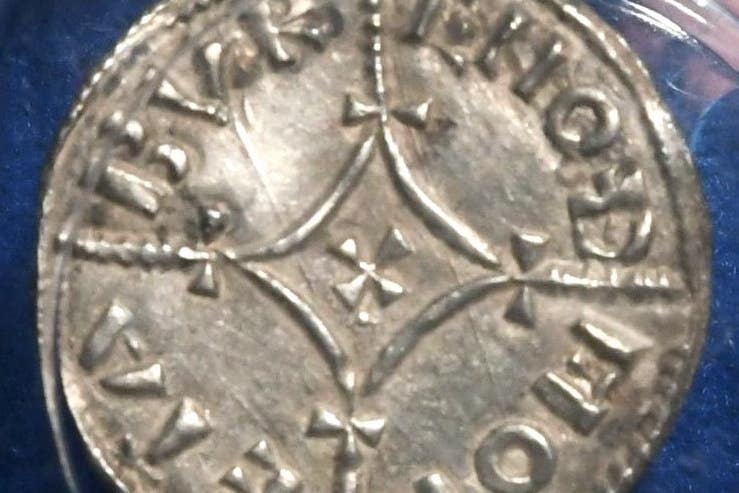Jury out in trial of men accused of bid to sell Anglo-Saxon coins worth £766,000
Craig Best, 46, and Roger Pilling, 75, deny conspiring to sell criminal property.

A jury has been sent out to consider verdicts in the trial of two men accused of an illegal plot to sell historically-important Anglo-Saxon coins.
Craig Best, 46, and Roger Pilling, 75, deny conspiring to sell criminal property – ninth century coins believed to have been buried by a Viking and which have never been declared as Treasure, and have not been handed to the Crown.
The defendants, on trial at Durham Crown Court, each also deny separate charges of possessing the criminal property, which prosecutors said is worth a total of £766,000.
Best, of South View, Bishop Auckland, was arrested with three coins at a Durham hotel after he met what he thought was a metal expert working for a wealthy American buyer, but who was in reality an undercover detective, jurors have heard.
Pilling, who owned an engineering business, was arrested at his home in Loveclough, Lancashire, and a further 41 coins were seized.
Prosecutors say these 44 coins originated from a find worth millions, known as the Herefordshire Hoard, which was also not declared.
The court has heard that the undercover police operation was set up after Best tried to sell coins to a different American collector, who contacted UK-based experts about the apparent availability of extremely rare and valuable examples.
The Crown does not allege that either of the defendants, who were both interested in metal detecting, made the find themselves.
It was believed the coins were made between 874 CE and 879 CE and were buried by a Viking during this particularly violent period of English history.
They included two extremely rare examples of two-headed coins, showing Alfred of Wessex and Ceolwulf, a figure who was discredited by Saxon writers as a Viking puppet ruler.
Summing up the case, Judge James Adkins told jurors that the prosecution case was that Pilling was an intelligent man, knew the coins were “hot” and that selling them would be difficult, so he used Best’s contacts to try to pass them on.
The judge said both men’s defences were that there was no agreement between them to sell the coins and they did not know the coins were criminal property.
The jury was sent home and will continue deliberating on Thursday.
Bookmark popover
Removed from bookmarks